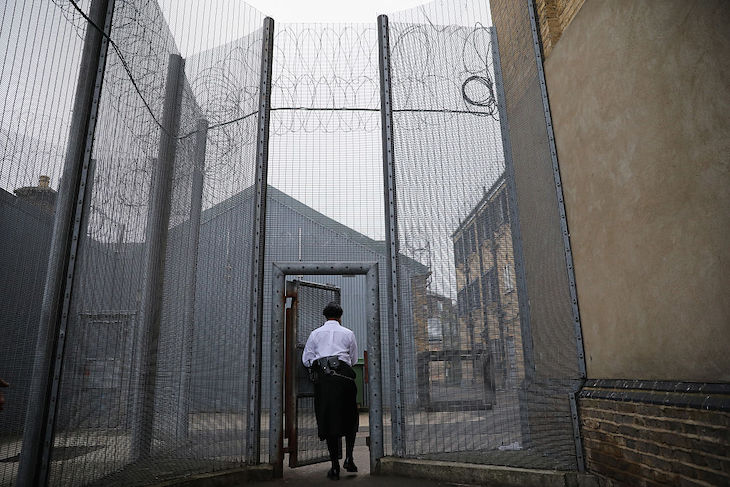Prisons are terrifying places when guards lose control. The authorities retreat and angry prisoners are left in charge – until the cavalry arrives. That comes in the form of the National Tactical Response Group (NTRG), which resolves hostage situations, work ‘at height’ when prisoners have scaled buildings or refuse to leave safety netting on the wings or are standing on a table. If things aren’t resolved amicably, the NTRG can instruct Tornado riot squads to storm prison wings. Worryingly, Britain’s prison guards are becoming more reliant on these methods to regain charge of out-of-control jails.
Last year, these squads were deployed nearly 800 times – a 40 per cent increase since 2022. The figures appear to show the trouble with relying on inexperienced guards to man our jails. The Ministry of Justice perhaps inadvertently makes this point itself: it says that a large number of callouts are ‘for non-violent or confrontational issues…and this data includes instances where a request for assistance was later deemed unnecessary.’
The Tornado Team stormed the wing with flashbangs
‘Jordan’, who works within our prisons and wishes to remain anonymous for fear of repercussions, says retreats from wings are often a ‘knee jerk reaction’. ‘A couple of prisoners fight on the wing and the officers retreat (or) draw their batons or hit the alarm at the drop of a hat’, he tells me.
Inevitably, this escalates situations which could otherwise be defused. In fact, Jordan is ‘sure the increase [in NTRG deployments] is because of inexperienced staff’ whose training now encourages them to retreat from wings if they feel unsafe. MoJ data supports this argument; the proportion of frontline prison officers with more than ten years’ experience continues to decline, falling six percentage points year-on-year, to just 29.8 per cent of all frontline staff. Meanwhile, 36.3 per cent of frontline staff now have less than three years’ experience. This means a wing may often only have inexperienced officers working on it.
Unlike junior officers, experienced officers are able to reassure their colleagues in difficult situations. Having seen many confrontations before, they know how to defuse situations rather than escalate them. Jordan described a situation at a prison which had lost control of a wing. NTRG’s recommendation was ‘retreat and we’ll send the riot squad in’. The experienced governor on site insisted on speaking to the men, and was able to calm them down. But all too often this doesn’t happen – and the NTRG is sent in.
While the authorities do inevitably regain control, the situation can be terrifying for inmates caught up in the middle. Billy, who doesn’t wish to give his surname, was on remand at HMP Bedford in early 2019 when a Tornado Team stormed his wing. He described a confrontation which began when officers decided to end ‘social’ time and refuse to allow any more men to shower after one prisoner kicked a door down. Men were angry; denying access to hygiene is one of the quickest ways to enrage people. Half-a-dozen prisoners went to the top landing of the wing and refused to go back to their cells. The few, young officers on the wing tried to persuade the men behind their doors. When this was unsuccessful, with lunchtime fast approaching, and other demands on their time, the officers took the decision to lock all cell doors and leave the wing with dozens of men milling about. From that point on, the situation escalated until the Tornado Team stormed the wing with flashbangs.
It’s not always so dramatic though. The MoJ points out that health and safety requirements mean that the NTRG must be contacted for any incident ‘at height’, even potentially if that’s just a prisoner standing on a pool table.
Professor Ian Acheson, a Spectator contributor and former prison governor who was a Tornado section commander in the 1990s, agrees that low staff numbers, and their relative inexperience may be contributing factors. These days, when faced with acts of indiscipline, but ‘lacking the numbers, there simply isn’t the capacity’ to resolve problems before they escalate, he says. Much easier to retreat from the wing, and let the governor bring in external resources. Acheson does not believe that there has been a rise in large scale disturbances, although there are particular establishments in which ‘the state does not have control and appeasement is now the default’.
Rather than being directly related to rising violence in our prisons, NTRG deployments are increasing because our prisons are understaffed, with too many inexperienced officers operating within rigid rules which force governors to call in NTRG. At its heart, this is another sign of the desperate staffing issues weakening our prison system.






Comments